Scandinavian crime fiction has been very much in vogue of late and The Keeper of Lost Causes is the sort of typical police procedural that is found in the genre. The story follows policeman Carl Mørck, a brusque fellow who is demoted to a position in a section of the Police HQ known as Department Q. The reasons for the name are unexplained but rather than being inspired by James Bond's gadget-creating colleague it is fact a tatty cellar containing files on unsolved 'cold cases'. Essentially Mørck has been put out to pasture as a prelude to retirement.
Unsurpringly, rather than doing the simple job he has been assigned of providing brief summaries of each case, the protagonist, with assistance from a colleague who has been sent to the same department, decides to reopen a case involving a missing politician who has been presumed dead. Mørck is played by Nikolaj Lie Kaas who appeared in the Danish crime series The Killing (Forbrydelsen) which seemed appropriate considering how much of the plot's DNA seems to have been inherited from that show; there is the dedicated cop devoted to their job yet lacking a family life, a politician and someone who is being kept captive by a criminal. Mørck's lack of social skills also put me in mind of The Bridge (Broen)'s Saga Norén. If you have seen Oldboy the captive's situation might feel a little familiar, too.
The storyline was fairly intriguing to begin with but the structure used of alternating between the investigation and flashbacks to past events suffers from giving the viewer too much information which puts them one step ahead of the cops, and thus reduced the tension. The film does benefit from stylish cinematography and some nice mood music but this wasn't enough to save a rather perfunctory narrative which lacks depth. In most drama you would expect to see characters changing during the course of the story; here Mørck and his sidekick Assad seem to come out at the end of the movie just as they began.
Those new to Scandinavian crime fiction might enjoy this more than those with some knowledge of the genre due to unfamiliarity with the themes explored here but for afficionados there is nothing really new on offer here. Maverick cops who don't get on with their bosses has been done many times before and it strained credulity that they didn't sack him for disobeying his superiors instead of just moaning at him a bit. Whilst quite well made and benefiting from decent performances, The Keeper of Lost Causes just wasn't memorable enough to stand out from its Nordic Noir rivals.
A Lost Cause
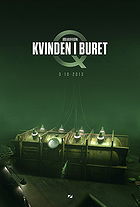 Posted : 10 years, 3 months ago on 27 March 2015 05:06
(A review of The Keeper Of Lost Causes)
Posted : 10 years, 3 months ago on 27 March 2015 05:06
(A review of The Keeper Of Lost Causes) 0 comments, Reply to this entry
0 comments, Reply to this entry
Disturbing and thought-provoking
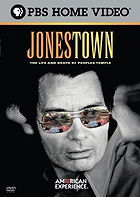 Posted : 10 years, 3 months ago on 20 March 2015 06:26
(A review of Jonestown: The Life and Death of Peoples Temple)
Posted : 10 years, 3 months ago on 20 March 2015 06:26
(A review of Jonestown: The Life and Death of Peoples Temple)Compiled from archive film and photographs and recent interviews with survivors Jonestown is a compelling though disturbing documentary feature about one of the most bizarre events of recent history.
The focus is very much on the oral testimony of survivors about their experiences within the 'Peoples Temple' organisation from its earliest days to the grim mass suicide which marked the end of Jonestown, the compound set up as an ideal community by Jim Jones in the Guyanan jungle.
The narrative was generally easy to follow despite the lack of narration but there were some points where further analysis and explanation of events would have been useful. It is clear for example that Jones had provided several people with firearms, but the processes by which they were chosen and how the weapons were procured is not explored. Given that there are so few survivors from those who went to Jonestown it is likely that some of the details will forever remain unknown, but I would have preferred it if the film had at least tried to explain what is known and what is uncertain about what happened.
The whole film serves as a kind of warning about the dangers of following charismatic yet ruthless and manipulative leaders. It is quite clear that Jones seemed to be able to give the impression that he was sympathetic to the dispossed and could offer them a better life, yet was really only interested in controlling people and using them for his own ends. In the short term he was amazingly successful, at one point even gaining a position within San Francisco's government.
The DVD release includes an interesting interview with the director and some additional interview footage which helped to explain some unclear aspects of the story. This was not long enough to provide the complete story of Jim Jones and his religious cult but it works well as a cautionary tale on why we should attempt to exercise reason and not accept a more immediate emotional response to people. If you are looking for a true story which is stranger than fiction then this is it.
The focus is very much on the oral testimony of survivors about their experiences within the 'Peoples Temple' organisation from its earliest days to the grim mass suicide which marked the end of Jonestown, the compound set up as an ideal community by Jim Jones in the Guyanan jungle.
The narrative was generally easy to follow despite the lack of narration but there were some points where further analysis and explanation of events would have been useful. It is clear for example that Jones had provided several people with firearms, but the processes by which they were chosen and how the weapons were procured is not explored. Given that there are so few survivors from those who went to Jonestown it is likely that some of the details will forever remain unknown, but I would have preferred it if the film had at least tried to explain what is known and what is uncertain about what happened.
The whole film serves as a kind of warning about the dangers of following charismatic yet ruthless and manipulative leaders. It is quite clear that Jones seemed to be able to give the impression that he was sympathetic to the dispossed and could offer them a better life, yet was really only interested in controlling people and using them for his own ends. In the short term he was amazingly successful, at one point even gaining a position within San Francisco's government.
The DVD release includes an interesting interview with the director and some additional interview footage which helped to explain some unclear aspects of the story. This was not long enough to provide the complete story of Jim Jones and his religious cult but it works well as a cautionary tale on why we should attempt to exercise reason and not accept a more immediate emotional response to people. If you are looking for a true story which is stranger than fiction then this is it.
 0 comments, Reply to this entry
0 comments, Reply to this entry
Who will survive?
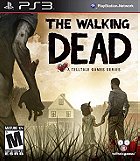 Posted : 10 years, 3 months ago on 10 March 2015 10:16
(A review of The Walking Dead - Season 1)
Posted : 10 years, 3 months ago on 10 March 2015 10:16
(A review of The Walking Dead - Season 1)The Walking Dead is somewhat of an anomaly amongst recent video games, as it is essentially an evolution of the old point and click style adventure game, a genre which barely exists anymore. What does feel contemporary about it is the setting, a dystopian world menaced by zombies. Have shambling corpses ever been so hip as they are at present?
Despite the obvious similarities to Resident Evil and especially The Last Of Us, Telltale's game manages to have a distinctive style all of its own. For one thing the graphical style is completely different; The Walking Dead is based on a comic book series and appropriately has a vibrant artistic design which feels completely appropriate for that. For the main part the animation is quite accomplished and there are only a few moments where the characters expressions seemed overly exaggerated or a little flat.
Another difference is that despite the title this is a game which isn't really focused on the zombie plague at all. Like the carnivorous plants of the classic story Day of the Triffids the zombies are used as a plot device to examine what would happen if civilisation started to break down, although this was a much less cosy story with a grim atmosphere closer in tone to The Death of Grass by John Christopher. Don't be fooled by the cartoon style, this is a bleak, adult story which has moments of graphic violence and a fair amount of profanity.
If you are used to point and click games then you would probably expect a lot of challenging puzzles but there are in fact very few. Walking Dead is more of an interactive drama where the story is played out based on how the player's character responds during conversations with the other survivors. You are usually given a choice of four options which must be made within a limited time period. Some of the decisions you have to make are real moral dilemmas such as who in the group gets to eat when food supplies are limited, and they feel like they have real weight as they can actually affect who lives and who dies.
The story is really brought to life by the excellent voice acting and clever scripting which ensures that the survivors come across as complex personalities. It has the feel of a quality television serial, being divided into 5 separate 'episodes' which even have previews of the following episode and recaps of previous events just as a tv show would. Although some plot twists were predictable the storyline was mostly compelling, with some excellent cliifhangers which really make you want to continue to see how events pan out. The heart of the story is the relationship between Lee Everett, an escaped convict and a young girl he meets called Clementine which was genuinely moving. It all builds up to a very powerful climax, my only disappointment about this being that there is only one way that the story can end no matter what actions the player takes as Lee. I would have preferred it to have multiple endings in the style of Fallout: New Vegas which would have given the player a greater sense of influence on the narrative.
The other less impressive aspect of the game was the action scenes when the zombies attack. They do provide a nice change of pace but felt a little pointless as there was no real penalty for failure. It would have been more effective if you were given a rating or lost the trust of the other characters if you screwed up, but the game just makes you play the scene again which gave these sections the feel of being merely filler.
As well as the 5 episodes an additional scenario, 400 Days, is included which introduces 5 new characters. The production values are as high as the rest of the game but each of the 5 segments is fairly short and I did not find them quite as involving as the main story. They pretty much stand alone and can be played in any order, although an epilogue makes some attempt to join them together. This part mainly seems to exist to introduce some characters who will feature in the next 'season' so did not seem quite so interesting when played on its own.
Overall though this was an excellent package and is highly recommended to gamers looking for a more thoughtful style of game with a strong storyline and good characters. If you'd rather be shooting up the undead with a shotgun then you would be better off looking elsewhere.
Despite the obvious similarities to Resident Evil and especially The Last Of Us, Telltale's game manages to have a distinctive style all of its own. For one thing the graphical style is completely different; The Walking Dead is based on a comic book series and appropriately has a vibrant artistic design which feels completely appropriate for that. For the main part the animation is quite accomplished and there are only a few moments where the characters expressions seemed overly exaggerated or a little flat.
Another difference is that despite the title this is a game which isn't really focused on the zombie plague at all. Like the carnivorous plants of the classic story Day of the Triffids the zombies are used as a plot device to examine what would happen if civilisation started to break down, although this was a much less cosy story with a grim atmosphere closer in tone to The Death of Grass by John Christopher. Don't be fooled by the cartoon style, this is a bleak, adult story which has moments of graphic violence and a fair amount of profanity.
If you are used to point and click games then you would probably expect a lot of challenging puzzles but there are in fact very few. Walking Dead is more of an interactive drama where the story is played out based on how the player's character responds during conversations with the other survivors. You are usually given a choice of four options which must be made within a limited time period. Some of the decisions you have to make are real moral dilemmas such as who in the group gets to eat when food supplies are limited, and they feel like they have real weight as they can actually affect who lives and who dies.
The story is really brought to life by the excellent voice acting and clever scripting which ensures that the survivors come across as complex personalities. It has the feel of a quality television serial, being divided into 5 separate 'episodes' which even have previews of the following episode and recaps of previous events just as a tv show would. Although some plot twists were predictable the storyline was mostly compelling, with some excellent cliifhangers which really make you want to continue to see how events pan out. The heart of the story is the relationship between Lee Everett, an escaped convict and a young girl he meets called Clementine which was genuinely moving. It all builds up to a very powerful climax, my only disappointment about this being that there is only one way that the story can end no matter what actions the player takes as Lee. I would have preferred it to have multiple endings in the style of Fallout: New Vegas which would have given the player a greater sense of influence on the narrative.
The other less impressive aspect of the game was the action scenes when the zombies attack. They do provide a nice change of pace but felt a little pointless as there was no real penalty for failure. It would have been more effective if you were given a rating or lost the trust of the other characters if you screwed up, but the game just makes you play the scene again which gave these sections the feel of being merely filler.
As well as the 5 episodes an additional scenario, 400 Days, is included which introduces 5 new characters. The production values are as high as the rest of the game but each of the 5 segments is fairly short and I did not find them quite as involving as the main story. They pretty much stand alone and can be played in any order, although an epilogue makes some attempt to join them together. This part mainly seems to exist to introduce some characters who will feature in the next 'season' so did not seem quite so interesting when played on its own.
Overall though this was an excellent package and is highly recommended to gamers looking for a more thoughtful style of game with a strong storyline and good characters. If you'd rather be shooting up the undead with a shotgun then you would be better off looking elsewhere.
 0 comments, Reply to this entry
0 comments, Reply to this entry
My Kind Of Town
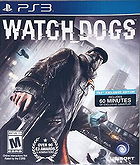 Posted : 10 years, 4 months ago on 1 March 2015 05:05
(A review of Watch Dogs)
Posted : 10 years, 4 months ago on 1 March 2015 05:05
(A review of Watch Dogs)The latest competitor to GTA's throne is Ubisoft's Watch Dogs which puts the player into the shoes of hacker and vigilante Aiden Pearce who pursues a campaign of revenge in the mean streets of Chicago. The publisher have given maximum publicity to this title which has certainly paid off in terms of sales though there has also been a certain amount of criticism from some who felt that the game did not live up to their expectations.
The main innovation of the game is the introduction of a hacking mechanic which allows Pearce to access information on every passing citizen, as well as the option to raid the bank accounts of some and get information on crimes occurring across the metropolis, which the player can then prevent from happening if they so wish. Pearce can also use his smartphone to hack into security systems which often involves a mini-game highly derivative of Pipe Mania. The most fun can be had from manipulating the traffic control systems in the city which becomes available as the player gains experience. Changing the traffic lights to cause collisions is pretty hilarious, and it is very satisfying to be able to raise blocks which put pursuing cars out of commission. Such tactics are pretty essential as enemy AI is pretty smart and they will follow you relentlessly, which was rather frustrating at the beginning when the player has not yet gained the ability to use the city's infrastructure to their advantage.
The near future setting of Watch Dogs is one where the city authorities have adopted a computer system which runs pretty much everything. It is a very unlikely scenario, as placing all of their eggs in one basket would so clearly result in a situation where the operating system would be extremely vulnerable to hackers, which unsurprisingly is exactly what happens in the game. This is in fact on the whole a game with a fairly unreal setting; the city never feels truly real in the same way that some of the GTA titles have achieved. It instead just feels like something that has been put together as a playing field for the gamer. I haven't been to Chicago but I don't imagine that there are avid chess players on every street corner. Watch Dogs also inherits many elements from previous Ubisoft franchises, anyone who has climbed up a radio tower in Far Cry will recognise the equivalent here.
Story-wise WD is fairly average, suffering from stereotyped characters such as the punky female hacker who seems to be making a guest appearance from The Girl With The Dragon Tattoo and cliched settings such as the inner-city slum dominated by a black criminal gang. A level set in the latter played out to a backing of hip-hip music. Aren't any other styles ever heard in the concrete jungle? The main guy Pearce is just dull, with a gruff voice which sounded unintentionally comic on occasion. Reminiscent of both Christian Bale's Batman and Deus Ex: Human Revolution's Adam Jensen, he was very hard to relate to as he was so unsympathetic. At one point another character critcises Pearce for his hypocrisy when he attempts to take the moral high ground and it is hard to disagree when he has been freely ransacking the bank accounts of random citizens throughout the game. There was the potential for an interesting commentary on the conflict between political control and the human rights of individuals but this opportunity is missed as Pearce does not really seem to be on the side of freedom at all, as he endlessly hacks into people's phones to eavesdrop on their conversations and even infiltrates their own homes via security cameras to invade their privacy.
Thankfully the actual gameplay is mostly engaging enough to keep you playing, with a range of things to do across the city. There is some repetition involved in the optional activities as the game aims very much for quantity rather than distinctiveness but it was still pretty enjoyable to play. The option to use hideouts and stations on the 'L' helped to save transit time from A to B in a useful way.
The setting of Chicago was well realised with a large playing area and smart graphics which are well up to the standard of similar titles on the PS3, although interior areas suffered from being a little bland in comparison to the impressive exteriors. A range of environmental effects and lighting changes occur as you play, which contributed greatly to the game's atmosphere. You can also log in to hot spots around the city in a simulation of wi-fi access which gives information about the history of Chicago which was a nice touch.
Overall Watch Dogs is not quite as innovative as might first appear, but it is a well crafted title which should appeal to fans of the free roam style of gaming. Virtual visitors to Chicago should check it out and find out whether the South Side really is the baddest part of town.
The main innovation of the game is the introduction of a hacking mechanic which allows Pearce to access information on every passing citizen, as well as the option to raid the bank accounts of some and get information on crimes occurring across the metropolis, which the player can then prevent from happening if they so wish. Pearce can also use his smartphone to hack into security systems which often involves a mini-game highly derivative of Pipe Mania. The most fun can be had from manipulating the traffic control systems in the city which becomes available as the player gains experience. Changing the traffic lights to cause collisions is pretty hilarious, and it is very satisfying to be able to raise blocks which put pursuing cars out of commission. Such tactics are pretty essential as enemy AI is pretty smart and they will follow you relentlessly, which was rather frustrating at the beginning when the player has not yet gained the ability to use the city's infrastructure to their advantage.
The near future setting of Watch Dogs is one where the city authorities have adopted a computer system which runs pretty much everything. It is a very unlikely scenario, as placing all of their eggs in one basket would so clearly result in a situation where the operating system would be extremely vulnerable to hackers, which unsurprisingly is exactly what happens in the game. This is in fact on the whole a game with a fairly unreal setting; the city never feels truly real in the same way that some of the GTA titles have achieved. It instead just feels like something that has been put together as a playing field for the gamer. I haven't been to Chicago but I don't imagine that there are avid chess players on every street corner. Watch Dogs also inherits many elements from previous Ubisoft franchises, anyone who has climbed up a radio tower in Far Cry will recognise the equivalent here.
Story-wise WD is fairly average, suffering from stereotyped characters such as the punky female hacker who seems to be making a guest appearance from The Girl With The Dragon Tattoo and cliched settings such as the inner-city slum dominated by a black criminal gang. A level set in the latter played out to a backing of hip-hip music. Aren't any other styles ever heard in the concrete jungle? The main guy Pearce is just dull, with a gruff voice which sounded unintentionally comic on occasion. Reminiscent of both Christian Bale's Batman and Deus Ex: Human Revolution's Adam Jensen, he was very hard to relate to as he was so unsympathetic. At one point another character critcises Pearce for his hypocrisy when he attempts to take the moral high ground and it is hard to disagree when he has been freely ransacking the bank accounts of random citizens throughout the game. There was the potential for an interesting commentary on the conflict between political control and the human rights of individuals but this opportunity is missed as Pearce does not really seem to be on the side of freedom at all, as he endlessly hacks into people's phones to eavesdrop on their conversations and even infiltrates their own homes via security cameras to invade their privacy.
Thankfully the actual gameplay is mostly engaging enough to keep you playing, with a range of things to do across the city. There is some repetition involved in the optional activities as the game aims very much for quantity rather than distinctiveness but it was still pretty enjoyable to play. The option to use hideouts and stations on the 'L' helped to save transit time from A to B in a useful way.
The setting of Chicago was well realised with a large playing area and smart graphics which are well up to the standard of similar titles on the PS3, although interior areas suffered from being a little bland in comparison to the impressive exteriors. A range of environmental effects and lighting changes occur as you play, which contributed greatly to the game's atmosphere. You can also log in to hot spots around the city in a simulation of wi-fi access which gives information about the history of Chicago which was a nice touch.
Overall Watch Dogs is not quite as innovative as might first appear, but it is a well crafted title which should appeal to fans of the free roam style of gaming. Virtual visitors to Chicago should check it out and find out whether the South Side really is the baddest part of town.
 0 comments, Reply to this entry
0 comments, Reply to this entry
Scandinavian Noir Comedy
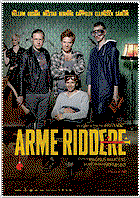 Posted : 10 years, 5 months ago on 31 January 2015 12:04
(A review of Jackpot)
Posted : 10 years, 5 months ago on 31 January 2015 12:04
(A review of Jackpot)Jackpot certainly starts off with a bang, as the movie's protagonist is discovered surrounded by dead bodies in a sleazy strip club. He is soon hauled off to the local cop shop by detective Solør and by a process of interrogation the full story of how he got there is pieced together.
The twist in the tale is that Svendsen is an unreliable narrator which helps to make the narrative less predictable than it could have been, as the characters and set-up are pretty much stereotypical: the noirish cynical cop, motivation to get a hold of a massive sum of money, and gang of random psychopaths. The humour is as black as pitch and the violence extremely graphic which makes this a film which isn't for the faint-hearted.
The cast did pretty well with the material they had but the characterisation was pretty thin, with the crooks being pretty much indistinguishable from each other. The main problem this film had for me is that it was rather reminiscent of Danny Boyle's Trainspotting and Shallow Grave but isn't as good as either of them. There isn't anyone as memorable as Renton or Spud and the dialogue isn't as well crafted as that in Boyle's movies either.
Jackpot was a well made movie which maintained my interest but I doubt that I would make a great effort to see it again. There were a few funny moments as well as some scenes which were impressively tense but the screenplay could have done with a bit more work really. It is worth a look if you enjoy black humour or contemporary crime stories but wasn't truly memorable.
The twist in the tale is that Svendsen is an unreliable narrator which helps to make the narrative less predictable than it could have been, as the characters and set-up are pretty much stereotypical: the noirish cynical cop, motivation to get a hold of a massive sum of money, and gang of random psychopaths. The humour is as black as pitch and the violence extremely graphic which makes this a film which isn't for the faint-hearted.
The cast did pretty well with the material they had but the characterisation was pretty thin, with the crooks being pretty much indistinguishable from each other. The main problem this film had for me is that it was rather reminiscent of Danny Boyle's Trainspotting and Shallow Grave but isn't as good as either of them. There isn't anyone as memorable as Renton or Spud and the dialogue isn't as well crafted as that in Boyle's movies either.
Jackpot was a well made movie which maintained my interest but I doubt that I would make a great effort to see it again. There were a few funny moments as well as some scenes which were impressively tense but the screenplay could have done with a bit more work really. It is worth a look if you enjoy black humour or contemporary crime stories but wasn't truly memorable.
 0 comments, Reply to this entry
0 comments, Reply to this entry
Raiders of the Lost Tintin
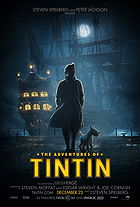 Posted : 10 years, 6 months ago on 2 January 2015 10:59
(A review of The Adventures of Tintin)
Posted : 10 years, 6 months ago on 2 January 2015 10:59
(A review of The Adventures of Tintin)Spielberg's first foray in the field of digital animation was unsurprisingly technically adept but sadly disappointing in many respects. Visually it was highly accomplished with beautifully detailed backgrounds which bring the right atmosphere to every scene. The characters were less successful due to some curious design decisions. Tintin himself is rendered in a way which seems to be aiming for photorealism yet is surrounded by a cast of caricatures, giving the impression that they should not really inhabit the same world.
They also speak with an odd assortment of accents too, for example in the opening scenes the setting is clearly Belgium yet it seems to be inhabited by mainly cockney geezers. Captain Haddock is Scottish for some unexplained reason. Perhaps the filmmakers had seen Shrek and concluded 'guys with Scottish accents are funny!'
The plot was quite thin and seemed to exist as a means to string together various action scenes more than anything else. These seemed very much inspired by the Indiana Jones series resulting in a movie which lacks the feel of the original source material. The fact that Tintin is a reporter was barely mentioned in the script. I found it hard to tell who the intended audience for this film was as it was too simplistic and lacking in depth for adults yet some of the content such as Haddock's alcoholism seemed unsuitable for children. Spielberg's attempts at comedy consistently fell flat, suggesting that he has no flair for this type of material.
It is many years since I read one of Herge's original stories but I seem to recall that the lead character was very charming. In Jamie Bell's interpretation he seemed to lack this charisma and came across as mildly annoying. He is accompanied on his adventures by his faithful hound Snowy, another attempt at creating a computer-generated pooch which joins Scooby Doo in the list of weird looking canines when rendered in such a way. Cute he ain't!
Tintin provides passable entertainment but I felt that it could have been so much better. On this evidence Spielberg will have to raise his game a lot in order to begin competing with the likes of Pixar.
They also speak with an odd assortment of accents too, for example in the opening scenes the setting is clearly Belgium yet it seems to be inhabited by mainly cockney geezers. Captain Haddock is Scottish for some unexplained reason. Perhaps the filmmakers had seen Shrek and concluded 'guys with Scottish accents are funny!'
The plot was quite thin and seemed to exist as a means to string together various action scenes more than anything else. These seemed very much inspired by the Indiana Jones series resulting in a movie which lacks the feel of the original source material. The fact that Tintin is a reporter was barely mentioned in the script. I found it hard to tell who the intended audience for this film was as it was too simplistic and lacking in depth for adults yet some of the content such as Haddock's alcoholism seemed unsuitable for children. Spielberg's attempts at comedy consistently fell flat, suggesting that he has no flair for this type of material.
It is many years since I read one of Herge's original stories but I seem to recall that the lead character was very charming. In Jamie Bell's interpretation he seemed to lack this charisma and came across as mildly annoying. He is accompanied on his adventures by his faithful hound Snowy, another attempt at creating a computer-generated pooch which joins Scooby Doo in the list of weird looking canines when rendered in such a way. Cute he ain't!
Tintin provides passable entertainment but I felt that it could have been so much better. On this evidence Spielberg will have to raise his game a lot in order to begin competing with the likes of Pixar.
 0 comments, Reply to this entry
0 comments, Reply to this entry
Beyond: Two Souls review
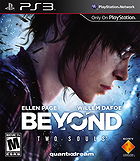 Posted : 10 years, 6 months ago on 29 December 2014 11:14
(A review of Beyond: Two Souls)
Posted : 10 years, 6 months ago on 29 December 2014 11:14
(A review of Beyond: Two Souls)In line with previous releases by Quantic Dream, Beyond: Two Souls is an attempt to create an interactive drama as much as a video game. The gameplay style was very much in the same vein as Heavy Rain although the controls were slightly refined with most button pressing sequences being more simplified, as well as the removal of on-screen prompts during fighting sequences. During the combat elements the player must move the action stick to attack the enemy or dodge their attacks which sounds fine in theory but with the camera moving around a lot this was more difficult than it should have been due to the changing perspective on the action. It was also disappointing that moving the characters around was still as difficult as it had been in Heavy Rain, this being one of the weakest aspects of both games.
Where the game really shines is in the graphical presentation. Every scene has a sense of realism to it and the characters are superbly animated and believable with only a few instances of uncanny valley moments. Environmental effects such as snowstorms and rainfall are highly accomplished. The sound design was also extremely good with appropriate effects being used throughout the game. The soundtrack was also fine although for my money it was less memorable than the score for Heavy Rain.
The story was derived from various influences including Stephen King novels, the X Files, Black Hawk Down and movies of the James Bond series as well as several James Cameron productions. I found it to be compelling although the non-linear structure took some getting used to and it did jump around within the timeline more than was really necessary. The cast were mostly excellent, Ellen Page is superb and brought out the emotional aspects of the story very well. She was ably supported by Willem Dafoe, although his role was much smaller so he only appeared in a few scenes. None of the voice acting was ever bad, but some of it was a little uninspired at times. The script was mostly good with the proviso that some of the dialogue could have done with a little polish, especially in the final scenes.
Overall I found this game to be highly entertaining with only minor defects which weren't significant enough to really spoil the experience. It is definitely worth a look if you enjoyed Heavy Rain or are looking for something a bit different to the norm.
Where the game really shines is in the graphical presentation. Every scene has a sense of realism to it and the characters are superbly animated and believable with only a few instances of uncanny valley moments. Environmental effects such as snowstorms and rainfall are highly accomplished. The sound design was also extremely good with appropriate effects being used throughout the game. The soundtrack was also fine although for my money it was less memorable than the score for Heavy Rain.
The story was derived from various influences including Stephen King novels, the X Files, Black Hawk Down and movies of the James Bond series as well as several James Cameron productions. I found it to be compelling although the non-linear structure took some getting used to and it did jump around within the timeline more than was really necessary. The cast were mostly excellent, Ellen Page is superb and brought out the emotional aspects of the story very well. She was ably supported by Willem Dafoe, although his role was much smaller so he only appeared in a few scenes. None of the voice acting was ever bad, but some of it was a little uninspired at times. The script was mostly good with the proviso that some of the dialogue could have done with a little polish, especially in the final scenes.
Overall I found this game to be highly entertaining with only minor defects which weren't significant enough to really spoil the experience. It is definitely worth a look if you enjoyed Heavy Rain or are looking for something a bit different to the norm.
 0 comments, Reply to this entry
0 comments, Reply to this entry
Shrek the Third review
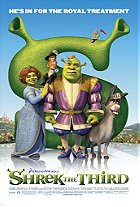 Posted : 10 years, 6 months ago on 25 December 2014 04:40
(A review of Shrek the Third)
Posted : 10 years, 6 months ago on 25 December 2014 04:40
(A review of Shrek the Third)Shrek the Third finds the series suffering from diminishing returns, as it is weaker than both of the preceding movies. The plot revolves around Shrek's attempt to find King Arthur as the rightful heir of the Kingdom of Far Far Away whilst simultaneously the disgruntled Prince Charming recruits a posse of shady characters to support his attempt to claim the throne for himself. It's pretty thin stuff which suggests that the scriptwriters were devoid of inspiration following the first two Shrek features.
Not a particularly amusing movie, it is lacking the creative wit and satirical aspects which made the franchise so enjoyable. On the plus side the cast are as good as ever and do well with what is rather weak material. Unfortunately the character development is poor throughout with nobody being given anything to do which adds depth to their persona. In this one Shrek is about to become a father which had the potential to be quite interesting, but this is squandered on a weak dream sequence which went on for far too long and lacked memorable dialogue. The series regulars are joined this time by Justin Timberlake as Arthur, who was disappointingly bland and Monty Python's Eric Idle who was thankfully far more enjoyable as Merlin.
The most impressive aspect of the whole production was the quality of the animation. The beautifully detailed scenes are a joy to behold and the characters' movement is impressively smooth and realistic. I was particularly impressed by the motion and colour of the sea which was brilliantly done.
Overall I found this to be quite enjoyable but it never achieves the same level as the first two Shrek films. Worth watching, but not particularly memorable.
Not a particularly amusing movie, it is lacking the creative wit and satirical aspects which made the franchise so enjoyable. On the plus side the cast are as good as ever and do well with what is rather weak material. Unfortunately the character development is poor throughout with nobody being given anything to do which adds depth to their persona. In this one Shrek is about to become a father which had the potential to be quite interesting, but this is squandered on a weak dream sequence which went on for far too long and lacked memorable dialogue. The series regulars are joined this time by Justin Timberlake as Arthur, who was disappointingly bland and Monty Python's Eric Idle who was thankfully far more enjoyable as Merlin.
The most impressive aspect of the whole production was the quality of the animation. The beautifully detailed scenes are a joy to behold and the characters' movement is impressively smooth and realistic. I was particularly impressed by the motion and colour of the sea which was brilliantly done.
Overall I found this to be quite enjoyable but it never achieves the same level as the first two Shrek films. Worth watching, but not particularly memorable.
 0 comments, Reply to this entry
0 comments, Reply to this entry
Magnificent
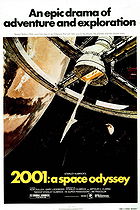 Posted : 10 years, 6 months ago on 14 December 2014 10:14
(A review of 2001: A Space Odyssey)
Posted : 10 years, 6 months ago on 14 December 2014 10:14
(A review of 2001: A Space Odyssey)Arguably one of the greatest science fiction films of all time, 2001 has been highly influential on many subsequent films and video games, yet has remained so distinctive that to some extent it is in a category all of its own.
Truly cosmic in scope, it is also highly abstract and mysterious, the meaning of the film being left to the audience to decide. The slow pace of the narrative won't suit everyone yet it is perfect for the material. The union of the visuals in the space station docking sequence with the soundtrack of the Blue Danube Waltz is truly stunning. Indeed, throughout the film the choice of music is absolutely right in creating the appropriate atmosphere at each scene; Ligeti's modernist pieces are suitability unnerving and awe inspiring and Khatchaturian's piece which is played at the beginning of the Jupiter mission sequence is beautifully melancholic.
2001 is also visually stunning, beautifully framed and photographed. The sets are incredible and are so convincing that they make watching the film a highly immersive experience. The model shots were also groundbreaking and have rarely, if ever, been bettered since. Despite being nearly 50 years old there is very little that is dated giving the production a timeless feel. If you can then you should definitely see this at the cinema as it is truly epic and some visual sequences such as the Star Gate section have a somewhat reduced impact on the small screen.
Due to the slow pace and enigmatic aspects of the story 2001 is never going to be a film which will appeal to all but if you are at all interested in the history of science fiction or cinema in general then you should definitely give it a try.
Truly cosmic in scope, it is also highly abstract and mysterious, the meaning of the film being left to the audience to decide. The slow pace of the narrative won't suit everyone yet it is perfect for the material. The union of the visuals in the space station docking sequence with the soundtrack of the Blue Danube Waltz is truly stunning. Indeed, throughout the film the choice of music is absolutely right in creating the appropriate atmosphere at each scene; Ligeti's modernist pieces are suitability unnerving and awe inspiring and Khatchaturian's piece which is played at the beginning of the Jupiter mission sequence is beautifully melancholic.
2001 is also visually stunning, beautifully framed and photographed. The sets are incredible and are so convincing that they make watching the film a highly immersive experience. The model shots were also groundbreaking and have rarely, if ever, been bettered since. Despite being nearly 50 years old there is very little that is dated giving the production a timeless feel. If you can then you should definitely see this at the cinema as it is truly epic and some visual sequences such as the Star Gate section have a somewhat reduced impact on the small screen.
Due to the slow pace and enigmatic aspects of the story 2001 is never going to be a film which will appeal to all but if you are at all interested in the history of science fiction or cinema in general then you should definitely give it a try.
 0 comments, Reply to this entry
0 comments, Reply to this entry
Bohemian Rhapsody review
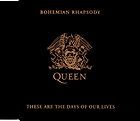 Posted : 10 years, 6 months ago on 5 December 2014 05:41
(A review of Bohemian Rhapsody)
Posted : 10 years, 6 months ago on 5 December 2014 05:41
(A review of Bohemian Rhapsody)If you hadn't heard this yet then where have you been? Freddie Mercury's brilliant song combined opera and rock to great effect. It sounds like a terrible idea but Queen really pulled it off. The result was bombastic, exciting and moving. Once heard, never forgotten. One of the greatest singles in the history of rock music.
 0 comments, Reply to this entry
0 comments, Reply to this entry
 Login
Login
 Home
Home 6 Lists
6 Lists 21 Reviews
21 Reviews Collections
Collections